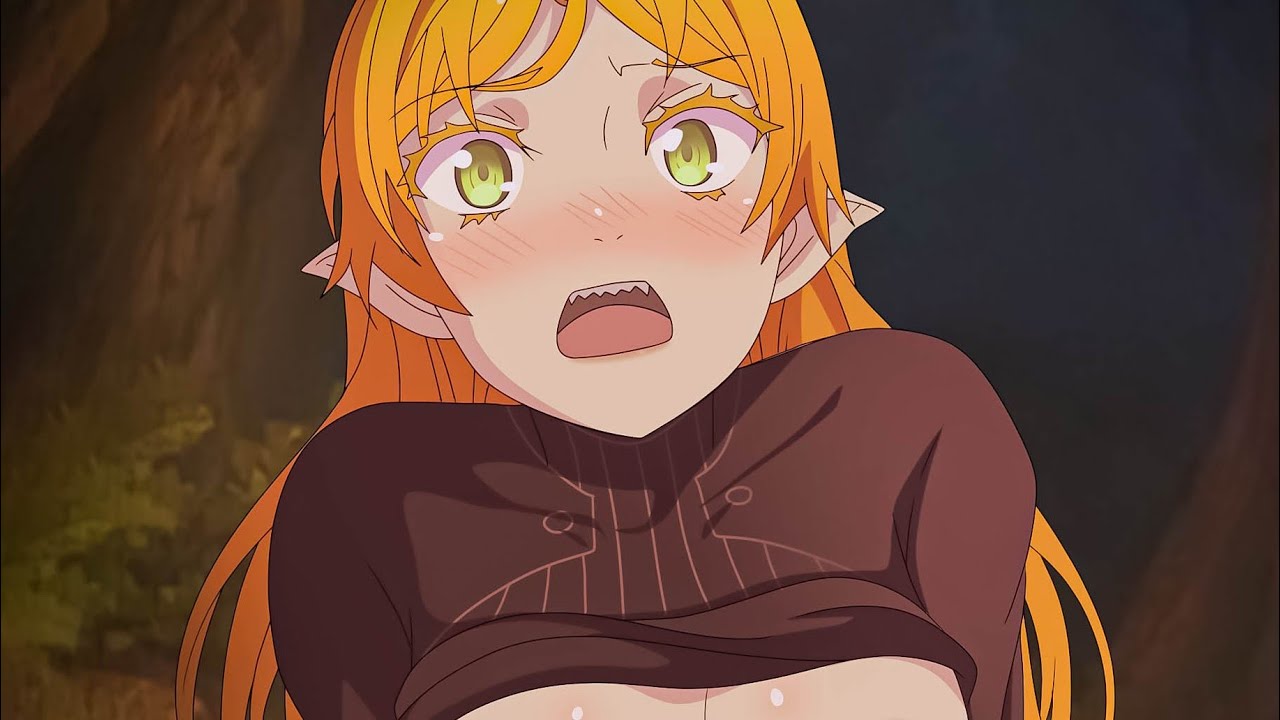The Quirky Journey of Isekai Ojisan: A Light-hearted Anime Review
Isekai Ojisan, a delightful anime series, took its sweet time reaching its conclusion. With multiple production delays, one can only speculate about the real reasons behind the setbacks. Nonetheless, despite not being able to fully capture my heart, this quirky series managed to leave an impression.
Visually, Isekai Ojisan incorporates minimalistic animation that authentically reflects the beloved games its protagonist, Ojisan, adores. The character designs and facial expressions are outstanding, providing viewers with an array of entertaining reaction shots. Despite the repetitive nature of these reactions, they somehow maintain their charm throughout the series.

The Culmination of the Stalkers and Bounties
In the last two episodes, the cosmos conspires to bring together Ojisan’s three stalkers. Takafumi and Fujimiya are ecstatic to witness this cosmic convergence. The encounter begins with Mabel, the “singing monster” whom Ojisan sets out to slay.
Surprisingly, Ojisan’s method of defeating her involves not violence, but rather appreciation for her singing prowess. Aoi Yuuki, the voice behind Mabel, delivers a commendable performance, although not on par with Tomatsu Haruka’s exceptional talent. Uncle manages to convince Mabel to serenade them with tunes from his home world, which unsurprisingly turn out to be game background music tracks. As Uncle dozes off on Mabel’s lap, Elf unexpectedly discovers them.
This encounter proves to be quite a revelation. Elf refrains from immediately attacking the pair and instead confronts Ojisan about their past encounters. As always, Ojisan remains blissfully unaware of the reasons behind Elf’s frustration. Eventually, their conversation shifts towards names, and Ojisan finally reveals his true identity as Shibazaki Yousuke. Elf, on the other hand, opts for the pseudonym “Sui.” They make a pact to only use these names when they are alone together, showcasing the pure tsundere nature of their relationship.
In a surprising turn of events, Alicia, along with her boys, joins the group to eliminate the same singing monster that Yousuke had already dealt with. While this endeavor proves fruitless, Yousuke inadvertently unleashes a greater threat by destroying the local shrine, unbeknownst to him that he has previously destroyed all three sacred shrines of this world. When Yousuke falls under the control of a powerful magic entity, the three stalkers band together for the sake of survival. However, Yousuke’s strategic mind remains steps ahead of his adversaries.
The Climactic Battle and Heroic Acts
The final episode primarily revolves around the much-anticipated “great otherworld battle” that Takafumi boasts about. While it delivers in terms of what it promises, thrilling battles aren’t the primary reason why viewers tune in to this series.
Nonetheless, the episode is spiced up with hilarious facial expressions and comedic moments, particularly from Mabel, who takes center stage during these final episodes. Interestingly, the more stressful the situation becomes, the more inherently comical Mabel’s character seems. As for Sui, she exhibits genuine heroism, donning a brave facade for the children and devising a plan to defeat the Blaze Dragon unleashed by Yousuke.
Yousuke’s ulterior motive is revealed – if he can amass enough power, he hopes to create a rift in the space-time continuum by slaying the dragon and return to Japan. However, Elf opposes this plan, and we are left wondering if Yousuke’s desired outcome will indeed come to fruition. This matter may be explored in a potential second season. Despite the production challenges, the anime has garnered significant popularity, thanks to its abundance of insider humor and an impressive lineup of beloved characters. However, it’s worth noting that the anime covers only about two-thirds of the manga, so it may be a while before AtelierPontdarc can deliver a sequel, despite the teasing hints in the epilogue.
Final Thoughts
More than any other series, Isekai Ojisan truly thrives on the brilliance of its cast. Each voice actor delivers an outstanding performance, but it’s Tomatsu and Aoi who truly shine and stand out amongst the ensemble. Their enthusiasm and delight in portraying their characters are evident throughout the series. Ultimately, Isekai Ojisan may not be groundbreaking or profound, but it offers a great deal of lighthearted fun. As a viewer, I may not have fully grasped every bit of humor, but I thoroughly enjoyed the overall experience. If a second season materializes in the future, you won’t hear any complaints from avid followers like me.
FAQs (Frequently Asked Questions)
1. Will there be a second season of Isekai Ojisan?
At this time, the possibility of a second season remains uncertain. While the anime has garnered significant popularity, it has covered only a fraction of the manga’s content. Fans will have to wait patiently to see if a sequel will be produced.
2. Who were the standout voice actors in Isekai Ojisan?
Tomatsu Haruka, who voiced the protagonist Ojisan, and Aoi Yuuki, who portrayed Elf, delivered exceptional performances and truly elevated the series with their energy and enthusiasm.
3. What makes Isekai Ojisan unique among other anime series?
Isekai Ojisan stands out due to its blend of minimalistic animation, clever visual elements, and hilarious reaction shots. Its insider humor and lovable character lineup also contribute to its distinctiveness.
4. Is Isekai Ojisan suitable for a high school audience?
Yes, Isekai Ojisan is appropriate for a high school audience. While it may contain some light innuendos and humor that teenagers can appreciate, it maintains an overall lighthearted and comedic tone.
5. What are the strengths of Isekai Ojisan as an anime series?
Isekai Ojisan excels in its ability to bring joy and entertainment to viewers. Its cleverness, amusing character interactions, and humorous moments make it a delightful watch for those seeking light-hearted escapism.

